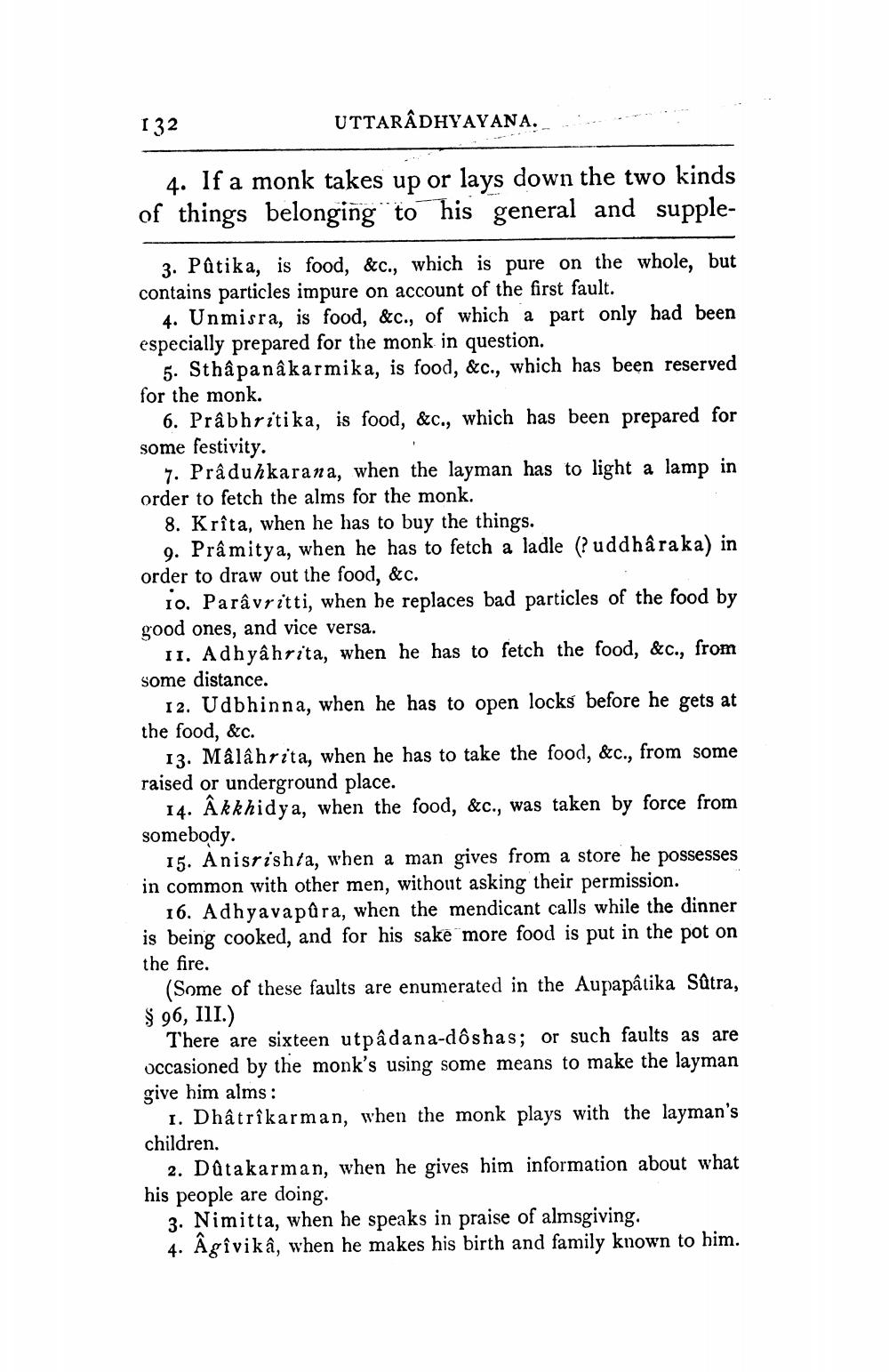________________
132
UTTARADHYAYANA.
-
4. If a monk takes up or lays down the two kinds of things belonging to his general and supple
3. Pâtika, is food, &c., which is pure on the whole, but contains particles impure on account of the first fault.
4. Unmisra, is food, &c., of which a part only had been especially prepared for the monk in question.
5. Sthâpanakarmika, is food, &c., which has been reserved for the monk.
6. Prâbhritika, is food, &c., which has been prepared for some festivity.
7. Prâduhkarana, when the layman has to light a lamp in order to fetch the alms for the monk.
8. Krîta, when he has to buy the things.
9. Prâmitya, when he has to fetch a ladle (?uddha raka) in order to draw out the food, &c.
10. Parâvritti, when he replaces bad particles of the food by good ones, and vice versa.
11. Adhyâhrita, when he has to fetch the food, &c., from some distance.
12. Udbhinna, when he has to open locks before he gets at the food, &c.
13. Mâlâhrita, when he has to take the food, &c., from some raised or underground place.
14. Âkkhidya, when the food, &c., was taken by force from somebody
15. Anisrishta, when a man gives from a store he possesses in common with other men, without asking their permission.
16. Adhya va pûra, when the mendicant calls while the dinner is being cooked, and for his sake more food is put in the pot on the fire.
(Some of these faults are enumerated in the Aupapâlika Sætra, $ 96, III.)
There are sixteen utpâdana-dôshas; or such faults as are occasioned by the monk's using some means to make the layman give him alms :
1. Dhâtrîkarman, when the monk plays with the layman's children.
2. Dûtakarman, when he gives him information about what his people are doing. 3. Nimitta, when he speaks in praise of almsgiving.
îvikâ, when he makes his birth and family known to him.




